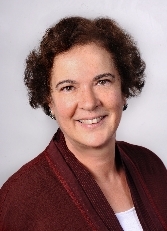
My work, strongly ethnographic and mostly based in Egypt, has focused on three broad issues: the relationship between cultural forms and power; the politics of knowledge and representation; and the dynamics of gender and the question of women’s rights in the Middle East . My first book, Veiled Sentiments, was about the politics of sentiment and cultural expression in a Bedouin community in Egypt that made an argument about the complexity of culture. My second book, Writing Women’s Worlds, framed as a feminist ethnography, used individual stories to make a larger argument about “writing against culture” (writing against typifications of social structure and cultural form by attending to internal argument, individual lives, and complex social dynamics) as a means of intervening in vexed discourses about a maligned region as well as challenging transnational feminist representations of women in Arab societies. My third ethnography, Dramas of Nationhood: The Politics of Television in Egypt, a contribution to the anthropology of nations and to media ethnography, explored the tensions between the social inequalities that bedevil nations and the cultural forms that aspire to address them. In a number of edited books, as well as my teaching, I have pursued these themes further to examine questions of gender and modernity in postcolonial theory, of anthropology and global media, and of violence national/cultural memory. Currently, as part of an effort to use anthropology to contribute to larger political debates, I am focusing on critiques of the universalist claims of liberalism and on the ethical and political dilemmas entailed in the international circulation of discourses of human rights in general, and Muslim women’s rights in particular.